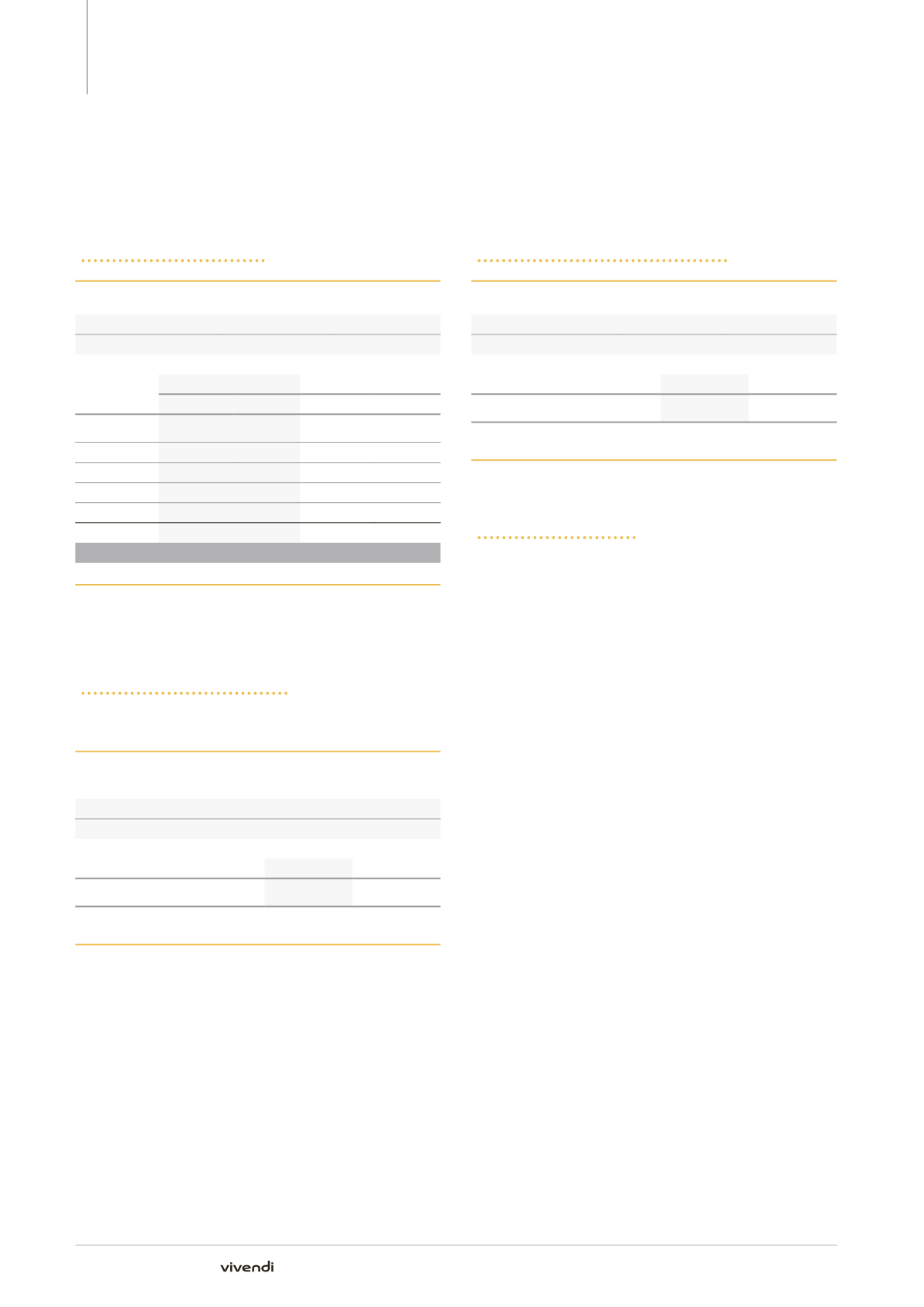

2
Societal,
Social
and Environmental Information
Social Indicators
Full-Time and Part-Time Employees
Full-Time and Part-Time Employees
GRI
UNGC
OECD
G4-10
-
V
2014
2013
Full-time Part-time Full-time Part-time
C+G
6,599
434
5,573
444
UMG
7,306
286
7,386
263
Vivendi Village
604
144
605
121
Corporate
186
12
215
13
Sub-total
14,695 (94%)
876 (6%) 13,779 (94%)
841 (6%)
GVT
17,823
164
17,318
69
Total
32,518 (97%) 1,040 (3%) 31,097 (97%)
910 (3%)
The Vivendi group makes limited use of part-time contracts. The ratio of
part-time employees is calculated by dividing the number of employees
working part-time by the total number of employees of the Vivendi group.
Average Weekly Duration of
Working Time for Full-Time Employees
*
The duration of working time for full-time employees is defined as the
working hours most widespread within the company.
Average Weekly Duration
of Working Time for Full-Time Employees
(hours)
GRI
UNGC
OECD
-
-
V
2014
2013
Consolidated data
39.1
39.0
*
This data includes GVT.
This figure represents the average weighted working hours per week
within the group for full-time employees. Working time varies according
to country and company and varies between 35 hours, the legal working
week in France and the overseas departments and territories and 48
hours in some South American countries. The median duration within
the group is 40 hours. Overall, between 2013 and 2014, weekly working
hours remained stable.
Average Yearly Duration, Full-Time Employees
*
Average Yearly Duration, Full-Time Employees
(hours)
GRI
UNGC
OECD
-
-
V
2014
2013
Consolidated data
1,805
1,816
*
This data includes GVT.
The table above shows the average weighted annual time worked by
employees.
Methods of Work Organization
Work organization practices have remained stable both in terms of
length of time worked and proportion of employees working part-time.
Changes in the organization of work are driven by the need to reconcile
the demands of Vivendi’s customers and the seasonal nature of business
activities, as well as the necessary balance between the personal and
professional lives of employees. New working arrangements, such
as telecommuting and flexible working hours, are becoming more
widespread within the group.
p
p
A telecommuting agreement signed by three representative trade
unions in the Canal+ Group facilitates the organization of work for
employees, by allowing them to work regularly from home. The
agreement is in force for the period 2012 to 2014.
p
p
Universal Music Group encourages telecommuting and flexible
working hours. This policy does not necessarily require signing
collective agreements, given the diversity of regulations in the
numerous countries where UMG is present.
p
p
Depending on their specific needs, which are often related to
customer service, a number of the group’s companies use varied
working time arrangements such as being on call and staggered
working hours. This is the case, for example, for the call centers of
ITI Neovision in Poland (Canal+ Group) and also for the production of
television broadcasts or shows at UMG and for ticketing operations,
so as to adapt to special events (festivals, shows and sports events)
that are the main focus of their business. In 2014, a flex-time
agreement was signed at Digitick.
3.2.2.
Organization of Work
■
■
3.2.2.1.
Organization of Work Time
68
Annual Report 2014



















